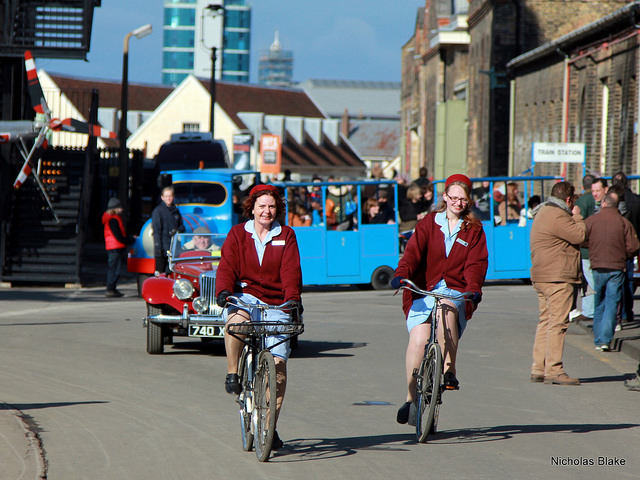What do Midwives do?
[fusion_dropcap class="fusion-content-tb-dropcap"]I[/fusion_dropcap]n anticipation for this year’s Call the Midwife Christmas Special, Openhouse have decided to look at what it is that midwives do in the medical services.
 Nicholas Blake / CC by
Nicholas Blake / CC by
The Role of a Midwife
Midwive’s are specialists in […]
In anticipation for this year’s Call the Midwife Christmas Special, Openhouse have decided to look at what it is that midwives do in the medical services.

Nicholas Blake / CC by
The Role of a Midwife
Midwive’s are specialists in pregnancy and birth, they look after soon to be expecting mothers and their babies during a phase of antenatal care, while the women are in labour, after the birth and up to 4 weeks after the baby is born.
If the pregnancy is normal and without complications, a midwife can perform all the duties required throughout antenatal care, though if complications do arise midwives may refer patients to a doctor trained to deal with specialist birthing situations.
A midwife is able to detect problems during the antenatal and postnatal period and call on medical help if necessary, and they are also trained in emergency procedures, should medical assistance not be available instantaneously. She also has a role in health education and preparation for parenthood, such as teaching antenatal classes.
Midwives may also be required to educate and prepare parents in their roles by teaching antenatal classes.
There are 2 types of Midwives in the NHS
There are hospital based midwives and community midwives, their roles are similar but they work in different areas.
Hospital Midwives
Hospital Midwives can be found on the antenatal clinics, labour wards and postnatal wards of hospitals and birth centres.
Community Midwives
Community Midwives work in the community, they can be available for home births and they may come into the hospital with pregnant women they have been working with, and once babies are born they often visit the mother and child up to 10 days afterwards, community midwives will also provide this postnatal care for mothers who have been looked after by hospital midwives during their birth.
Private Midwives
You can get a private midwife who will not be part of the NHS, expecting parents will pay for this themselves. Many people use this option for home births.
Doulas and Birth Companions
Doulas and Birth companions do not have midwife training in antenatal care, but they do offer physical and emotional support for expecting parents, their support can last for years or just the period of antenatal and postnatal.
Midwife Training
Many midwives train as nurses before becoming midwives, though it is also possible to get a sole midwife qualification, without needing to study as a nurse.
Midwives that go for the sole qualification will study for a university degree in midwifery practising both theory and practical before earning the qualification.
To remain qualified in the midwife profession, they will need to work a minimum number of hours and attend study events.
We hope you enjoy Call the Midwife this year and that you now have a better understanding of what it takes to work in midwifery.
Here at Openhouse, we provide Midwives with helpful tools to make their jobs easier such as our midwife specific bags that will aid them in transporting their kit around communities and hospitals. Take a look at some here.

Thank you to the NCT for the information.


